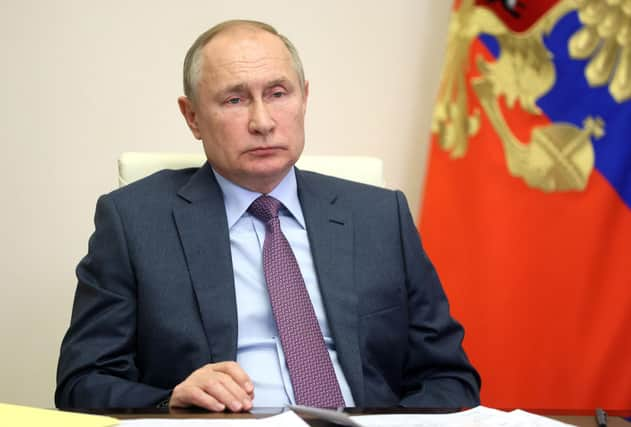As Boris Johnson struggles with troubles of his own making, Vladimir Putin issues autocratic demands to Nato – Scotsman comment


The problem with the expenditure of so much brain-power over such issues is that they are becoming all our politicians talk about.
The embattled Prime Minister has been trying to drum up support from his own MPs but, while he is doing that, his attention is not on the big, serious issues of the day.
Advertisement
Hide AdAdvertisement
Hide AdResponding to the Liberal Democrats’ victory in North Shropshire, previously one of the Conservatives’ safest seats, Johnson appeared to try to blame the media, saying it came about because people had been hearing “a litany of stuff about politics and politicians and stuff that isn’t about them and things we can do to make life better”.
This weak argument misses the point: the lack of confidence in his leadership, so clearly reflected in the by-election result, has been created by his own and his government’s failings, not those reporting about them. Former Scottish Conservative leader Ruth Davidson, so often an insightful critic of Johnson’s inadequacies, said the party’s MPs were looking for “a bit of a bloody grip” and for the “own goals” to end.
As well they should be, because it is only then that the government will be fully focussed on its actual job.
Handling the Covid pandemic continues to be a hugely complex task, but in the east of Europe another crisis is growing in seriousness: the threat of a Russian invasion of Ukraine and, potentially, other former Soviet states.
Yesterday saw Vladimir Putin's regime publish a proposed security treaty between Russia and Nato, which included a condition that the western alliance should refuse membership to Ukraine. Perhaps even more alarmingly, it demanded that Nato remove its troops and weapons from much of eastern Europe, including Poland, Estonia, Lithuania and Latvia.
This is a dictatorial president, who has lamented the demise of the Soviet Union, attempting to tell former Iron Curtain states what can and cannot happen within their own borders.
Nato quickly rejected the idea, but one wonders how much input the UK Prime Minister had in that decision, given all the other things currently on his mind.
A message from the Editor:
Thank you for reading this article. We're more reliant on your support than ever as the shift in consumer habits brought about by coronavirus impacts our advertisers.
If you haven't already, please consider supporting our trusted, fact-checked journalism by taking out a digital subscription.
Comments
Want to join the conversation? Please or to comment on this article.
